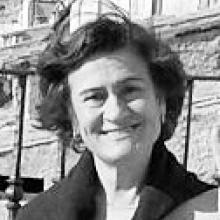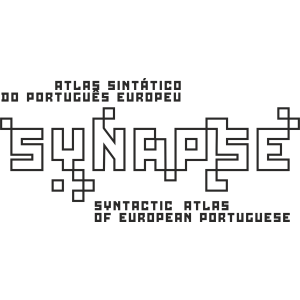Dialectology and Diachrony
The core object of study of the Dialectology and Diachrony group (D&D) is language variation, across centuries and covering several geographical areas. The group’s descriptive and theoretical studies, which are regularly published in prestigious journals and volumes, are accompanied by the construction of various digital resources from either historical documents or contemporary oral data in non-standard varieties of Portuguese or Portuguese-related languages. A substantial part of these oral data have been gathered in Portugal, both in the archipelagos of Madeira and the Azores, and in the mainland, where some of the varieties under study are spoken in different points of the border with Spain. Additionally, D&D studies Portuguese or Portuguese-related varieties that are, to a variable degree, the product of contact with other languages, which is the case of Caboverdean and Brazilian Portuguese. All these works assume a comparative perspective with other natural languages, from diverse periods and regions.
The standard varieties, however, are not left behind, since part of the group’s activities and outputs concerns (i) the intricate linkage between those and the non-standard varieties, and (ii) the development of new tools for the formal teaching of Portuguese.
This coverage of standard and non-standard varieties ensures a connection between theoretical research and the community at large (including productive collaborations with other Portuguese teaching entities, in Portugal and abroad), also guaranteed by the regular presence of various group members in open online seminars and conferences, and further highlighted by science communication endeavours, such as general audience publications and language oriented cultural events.
Membros
Integrated members with PhD
Integrated members without PhD
Colaboradores
Concluded
| Resources | Type |
|---|---|
| A Sound Map for Portuguese Dialects - MADISON | Atlas |
| CORDIAL-SIN - Syntax-oriented Corpus of Portuguese Dialects - CORDIAL-SIN | Corpus |
| Forgotten Letters 1900-1974 - FLY | Corpus |
| Glossário dos dialetos portugueses com informação sintática - GloDiP | Database |
| Language Unity and Diversity: Variation in Caboverdean and beyond - LUDViC | Corpus |
| Linguistic and Ethnographic Atlas of Azores - ALEAç | Atlas |
| Mobilidade Ascendente Entre As Minorias - MAEAM | Corpus |
| Post Scriptum - P.S. | Corpus |
| Revista Lusitana | Eletronic Edition |
| Revista Lusitana - Anthroponyms Index | Eletronic Edition |
| Revista Lusitana - Etymology index | Eletronic Edition |
| Revista Lusitana - Subject index | Eletronic Edition |
| Revista Lusitana - Toponyms index | Eletronic Edition |
| Revista Lusitana - Word Index | Eletronic Edition |
| SynAPse: The Syntactic Atlas of European Portuguese | Atlas |
| Tagged and Parsed Old Portuguese Texts - WOChWEL's POS | Corpus |
| Thesaurus of Dialectal Portuguese - TEDIPOR | Lexicon |
| Unknown Letters - CARDS | Corpus |
. (2018). O resumo de artigo científico: exemplo de um percurso didático em escrita académica. In Osório, P. Leurquin, E. & Coelho, M. C. (orgs.). Lugar da gramática na aula de Português. Rio de Janeiro: Dialogarts. |
. (2018). Para que serve a didática? In Correia. In (L. G. and Leão, R. and Poças, S.). Oporto: CIIE - Centro de Investigação e Intervenção Educativas / Faculdade de Psicologia e de Ciências da Educação da Universidade do Porto. |
. (2018). Word order change from a diachronic generative syntax perspective. In A. M. Martins & Cardoso, A. (Eds.), Word Order Change. Oxford/New York: Oxford University Press. |
. (2018). Infinitival complements of causative/perception verbs in a diachronic perspective. In Complement Clauses in Portuguese: Syntax and Acquisition (Gonçalves, A. and Santos, A. L.). Amsterdam/Philadelphia: John Benjamins Publishing. |
. (2018). Os verbos lembrar e esquecer: os dados dialetais nas entradas lexicais. In da Universidade do Estado da Bahia (Santos, E. S. and Almeida, A. A. D. and Neto, N. A. S. (orgs.). Olhares sobre o Léxico. Perspectivas de Estudo. Salvador: EDUNEB –). . |
. (2018). O galego e o português no tempo e no espaço. In Obreiro da língua, amigo da xente (X. Álvarez Perez and M. Brea). Estudos de xeografía linguística en homenaxe a Manuel González. Santiago de Compostela: Universidade de Santiago de Compostela. |
. (2018). «Dialectal», «provinciano», «regional». In («arcaico» y «desusado» en dicionários del português europeo. In M. Alvarez de la Granja and E. González Seoane). Madrid/Frankfurt am Main: Iberoameriana Vervuert. |
. (2008). Efeitos de modelização no input: o caso da aquisição de conectores. In Textos seleccionados do XXII Encontro da Associação Portuguesa de Linguística. S. Frota e A. L. Santos. Lisboa: APL. |
. (1980). Adéquation des modèles théoriques à l’enseignement du portugais-langue étrangère. In Encrages (pp. 66-73). . |
. (2012). Variation in subject-verb agreement in an insular dialect of European Portuguese. In Non-dominating Varieties of pluricentric Languages. Getting the Picture. In memory of Prof. Michael Clyne (pp. 335-356). ISBN: 978-3-631-62024-3. |
. (2011). Concordância Verbal e variantes de 3ª pessoa do plural em PE: Resultados preliminares de um estudo sociolinguístico com base numa amostra de Português Falado no Funchal. In Línguas Pluricêntricas: Variação Linguística e Dimensões Sociocognitivas / Pluricentric Languages: Linguistic Variation and Sociognitive Dimensions (pp. 301–318). ISBN: 978-972-697-201-3. |
. (2012). Extraposition of restrictive relative clauses in the history of Portuguese, in Parameter theory and linguistic change. In (pp. 77-96). Galves, S. Cyrino, R. Lopes, F. Sandalo & J. Avelar. Oxford: Oxford University Press. |
. (2008). Desenvolver c ompetências de análise linguística, in Desenvolver Competências em Língua Portuguesa. In (pp. 137-172). Sousa & A. Cardoso. Lisboa: Centro Inderdisciplinar de Estudos Educacionais / Escola Superior de Educação de Lisboa. |
. (2003). O texto informativo/explicativo no 1º Ciclo, in A Didáctica das Línguas e Literaturas em Portugal: contextos de emergência, condições de existência e modos de desenvolvimento. In (C. Mello and A. Silva and C. Lourenço and L. Oliveira and M. H. Araújo e Sá. Coimbra: SPDLL and Pé de Página, pp. 75-80). . |
. (2004). The place of Portuguese as a First Language in the National Curriculum of Basic Education, in Flexibility in the Curriculum, Citizenship and Communication. In . Lisboa: ME-DEB. |
. (2004). Morphological Tagging and Syntactic Annotation of a Dialectal European Portuguese Corpus, in Language Technology for Portuguese: shallow processing tools and resources. In (pp. 73-87). Branco, A. Mendes & R. Ribeiro. Lisboa: Colibri. |
. (2014). Syntactic change in Portuguese and Spanish: divergent and parallel patterns of linguistic splitting, in Portuguese/Spanish Interfaces. In (pp. 35-64). Amaral & A. M. Carvalho. Amsterdam/Philadelphia: John Benjamins. |
. (2013). Copiar o português duocentista: A Demanda e o José de Arimateia. In Ao Sabor do Texto. Estudos dedicados a Ivo Castro (pp. 383-402). R. Álvarez, A. M. Martins, H. Monteagudo & M. A. Ramos. Santiago de Compostela: Universidade de Santiago de Compostela. |
. (2013). A posição dos pronomes pessoais clíticos, in Gramática do Português. In (Amália Mendes, Luísa Segura, Maria Mota, Maria Bacelar do Nascimento, E. Raposo (eds.), pp. 2231-2302). Fundação Calouste Gulbenkian. |
. (2012). VP Ellipsis: New Evidence from Capeverdean Creole, in Romance Languages and Linguistic Theory 4, ed. In (pp. 155-175). Franco, S. Lusini & A. Saab. Amsterdam/Philadelphia: John Benjamins. |
. (2012). Deictic Locatives, emphasis and metalinguistic negation, in Parameter Theory and Linguistic Change. In (pp. 213-236). Galves, S. Cyrino, R. Lopes, F. Sandalo & J. Avelar. Oxford/New York: Oxford University Press. |
. (2012). Coordination, gapping, and the Portuguese inflected infinitive: The role os structural ambiguity in linguistic change, in Grammatical Change: Origins, Nature, Outcomes. In (pp. 274-291). Jonas, J. Whitman & A. Garrett. Oxford/New York: Oxford University Press. |
. (2012). Aparente variação na concordância sujeito-verbo no português europeu: ambiguidade quanto ao carácter singular ou plural do sujeito frásico, in Rosae: linguística histórica, história das línguas e outras histórias. In . Lobo et al. Salvador: EDUFBA. |
. (1950). Latin and Portuguese in the Middle Ages. In The Historiography of Medieval Portugal (c. 1950-2010) (pp. 67-85). J. Mattoso, M. de Lurdes Rosa, B. Vasconcelos e Sousa & M. J. Branco. Lisboa: IEM - Instituto de Estudos Medievais. |
. (2010). Apparent Hyper-raising in Brazilian Portuguese: Agreement with Topics across a finite CP, in The Complementiser Phase: Subjects and Wh-dependencies. In (pp. 143-163). Oxford: Oxford University Press. |
. (2010). Middle Scrambling with deictic locatives in European Portuguese, in Romance Languages and Linguistic Theory 2, ed. In (pp. 59-76). Bok-Bennema, B. Kampers-Manhe & B. Hollebrandse. Amsterdam/Philadelphia: John Benjamins. |
. (2009). Syntactic change as chain reaction: The emergence of hyper-raising in Brazilian Portuguese, in Historical Syntax and Linguistic Theory. In (pp. 144-157). Crisma & G. Longobardi. Oxford/New York: Oxford University Press. |
. (2009). Subject doubling in European Portuguese dialects: The role of impersonal se, in Romance Languages and Linguistic Theory 2007, ed. In (pp. 179-200). Aboh, E. van der Linden, J. Quer & P. Sleeman. Amsterdam & Philadelphia: John Benjamins. |
. (2008). Investigating language change in a comparative setting, in Questions on Language Change. In (pp. 99-116). Almeida, B. Sieberg & A. M. Bernardo. Lisboa: Colibri/Centro de Estudos Alemães e Europeus. |
. (2007). Double realization of verbal copies in European Portuguese emphatic affirmation, in The Copy Theory of Movement. In (pp. 77-118). Corver & J. Nunes. Amsterdam/Philadelphia: John Benjamins. |



























